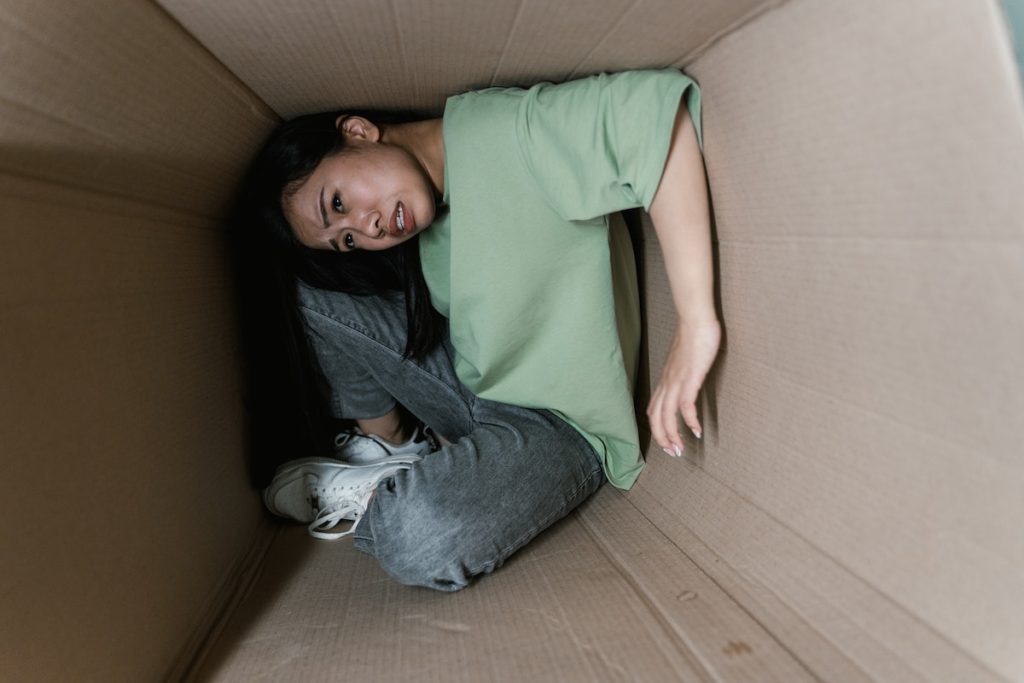Disclaimer: This website provides health information for educational purposes only and is not a substitute for professional medical advice, diagnosis, or treatment. Always seek the guidance of a qualified healthcare provider with any questions you may have.
Some people think medical procedures are anxiety-inducing. Some are afraid to undergo medical procedures partly because they have never experienced one before and partly because they have heard horror stories from others who have. Others simply don’t like getting tests done or going to the doctor in general. Then there are those who have claustrophobia, which can make the idea of undergoing a medical procedure in tight, enclosed places very daunting.
If you have claustrophobia, you are not alone. It is estimated that up to 12.5% of the population fear confined or small spaces. Studies also show that more women have claustrophobia than men. Fortunately, there are ways to manage your claustrophobia during medical procedures to get the care you need without excessive anxiety.
Here are some tips to help you manage your fear during medical procedures.
Talk to Your Doctor for Alternative Procedures
There can be instances when your doctor will require you to undergo tests that can trigger your claustrophobia. One example is a Magnetic Resonance Imaging scan. This procedure uses strong magnetic fields and pulses of radio waves to create detailed images of the inside of your body.
For some people, lying still in a narrow, confined space for an extended period can be very anxiety-provoking. If this is the case for you, talk to your doctor about alternative procedures that may be available. In some cases, you may be able to have an open MRI, which is a type of MRI scan that uses a wider machine.
Ask your doctor if you can opt for the open MRI procedure instead. If your hospital doesn’t have one, you can look for a private diagnostic center instead. This allows you to skip long waiting lines and reduce your waiting time. Once the results are out, you and your doctor can receive the report. Just be sure to find a reliable and licensed center to get accurate results.
Bring Someone With You
If possible, bring someone with you to your appointment. This can be a close friend, one of your parents or sibling, your partner, or anyone you can trust and rely on.

Having someone else there can also help you feel more comfortable and relaxed. If you don’t have anyone who can come with you, see if the hospital or clinic has a support person who can stay with you during the procedure.
Try Visualization Techniques
Studies show that visualization techniques can help in managing claustrophobia. A virtual reality app trial successfully reduced phobia in people afraid of dogs, spiders, heights, needles, and flying. You can try visualization techniques on your own before the experts start the procedure.
Once you’re in the room and ready to start the procedure, close your eyes and imagine yourself in a peaceful place. This can help take your mind off the fact that you’re in a small, enclosed space. Try to focus on your breath and take deep, slow breaths. Inhale through your nose and exhale through your mouth.
You can also try to imagine the machine as something that is not threatening. For example, suppose you’re undergoing a CT scan. In that case, you can imagine the machine as a giant x-ray machine that is helping the doctors get a better look at your insides. This can temporarily make you feel at ease while the procedure is ongoing.
Stay Positive
Remember that the procedure is temporary and will be over before you know it! Stay positive and tell yourself that you can get through this. It may help to remind yourself why you’re undergoing the procedure in the first place.
Remind yourself that you’re undergoing some medical procedures to rule out any serious health concerns. The sooner you get over the procedures, the sooner you’ll be able to return to your everyday life.
Take Medication if Necessary
There are times when, no matter your preparation, your claustrophobia is just too much to handle. If this is the case, talk to your doctor about taking medication before the procedure. This can help you relax and get through the process with minimal anxiety.
If prescribed medication, take it as directed. Don’t drink alcohol before the procedure as this can interfere with the medication’s effects.
Taking medication is usually the last resort for people with claustrophobia. If you can get through the procedure without medication, that’s great! But if you need it, don’t be afraid to ask for it.
Whatever you do, don’t try to self-medicate with alcohol before the procedure. This will only make the experience more anxiety-provoking and can potentially be dangerous.
Undergoing a medical procedure can be scary for anyone—but if you have claustrophobia, it can feel like a great challenge. However, by following these tips and working closely with your medical team, you can easily get through medical procedures!




